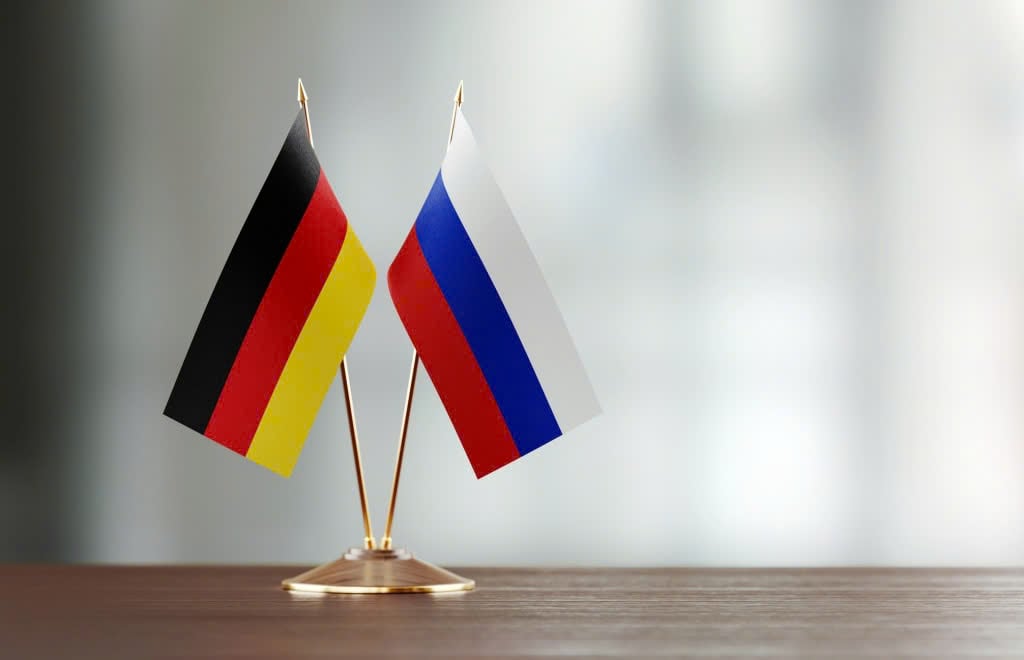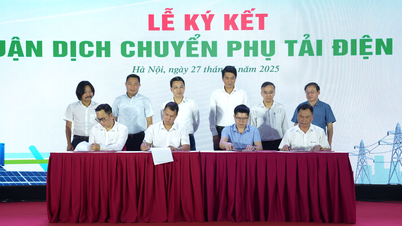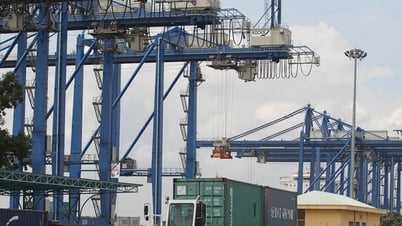Compromise for German political stability
At the end of April, the SPD passed a landmark decision to join a coalition with the CDU/CSU. With more than 80% of SPD members voting in favor, the path to forming a new government under Friedrich Merz was clear. Although negotiations between the parties were not easy, the parties themselves avoided major scandals, keeping the political situation from falling into crisis.
The decision was not an easy one for either the CDU/CSU or the SPD, as both parties face a shift in Germany’s political landscape. While their differences remain significant, they recognize that only cooperation can prevent a return to multiparty chaos and the rise of the far-right AfD.
The CDU/CSU-SPD coalition has historically been called a “grand coalition,” but under the current distribution of seats in the Bundestag , the term is no longer appropriate. With a relatively small majority, the combination no longer has the sense of absolute power it once had. Instead, the coalition has become a “mini-coalition,” forcing the parties to seek consensus on important issues.
The formation of this coalition is not only a temporary political solution to maintain stability, but also a response to the rise of the AfD. With this far-right force increasingly attracting the support of a large part of the electorate, especially in areas that are traditionally the “territory” of traditional parties, the CDU/CSU - SPD coalition becomes a viable option to prevent political polarization and protect democracy.
However, this combination of parties with opposing political views will continue to pose significant challenges. Issues such as tax reform, social security, and foreign policy will require constant adjustment, especially as opposition parties such as the AfD and Die Linke gain influence in parliament. However, in the current context, this new government is still seen as the only solution to maintain stability and prevent political turmoil in the country.
The coalition agreement talks between the CDU/CSU and the SPD, although not without major debate, still reflect a significant consensus between Germany's two major parties. The terms of the agreement are not binding, but they clearly demonstrate a convergence on many socio-political issues, showing important common ground between the governing coalition's positions.
In fact, the two parties' positions on most major issues overlap, from economic policy to social issues. Both the CDU/CSU and the SPD are well aware of the challenges facing Germany, such as the need to reform the tax system, maintain social security policies and deal with global issues such as climate change and international security.
German Foreign Policy under Friedrich Merz: From Confrontation to Pragmatism
One of the notable points in the new coalition agreement between the CDU/CSU and the SPD is the change in Germany's foreign policy, which reflects a clear shift from the traditional policies of each party. In previous coalition agreements, it was easy to recognize the imprint of each party, especially the SPD and the Greens, in shaping foreign policies. However, this time, this distinction is almost gone, showing a certain harmony between the major parties on foreign policy strategy in the current context.
In the past, the SPD had a clear “Eastern” policy, initiated by Chancellor Willy Brandt with the “Ostpolitik” (Eastern Policy), aimed at improving relations with Eastern European countries, especially the Soviet Union. However, after abandoning this policy, the SPD has not yet found a way to recreate a similar policy in the new context, when international relations and the global distribution of power have changed dramatically. The absence of a clear “Eastern” strategy shows that the SPD, like the CDU/CSU, is looking for a more pragmatic and flexible foreign policy, suitable for today’s multipolar world.
This is evident in the fact that both parties have agreed to focus on transatlantic relations, especially with the US and its European partners. There is no longer a special relationship in German diplomacy other than this. Both the CDU/CSU and the SPD are aware that relations with the US and its NATO allies are an important cornerstone of German foreign policy, while relations with Russia and Eastern European countries have become much more complicated following the conflict in Ukraine and the change in the global political environment.
In the new governing coalition, the SPD has lost interest in the post of Foreign Minister - a once-iconic position in German politics. As a result, for the first time in many years, both the Chancellery and the Foreign Ministry are held by the CDU, with Friedrich Merz as Chancellor and Johann Wadephul as Foreign Minister.
Unlike the previous term, where disagreements between Olaf Scholz and Annalena Baerbock repeatedly complicated Germany's foreign policy, the Friedrich Merz - Johann Wadephul duo appeared to be in agreement and consistent. This combination promised to bring a clearer and more stable direction to Germany's global role, while the SPD focused more on domestic policies such as the economy and social welfare.
The SPD decided not to contest the Foreign Ministry, instead retaining the Defense Ministry and gaining control of the Finance Ministry. The SPD reasoned that in a context of militarization and global instability, control of these two ministries was enough to control the country’s cash flow and guide domestic strategy. Defense Minister Boris Pistorius was forced to maintain a strong media image, while holding the Finance Ministry would allow the SPD to secure financial control for its priorities. Between foreign policy ambitions and practical political interests, the SPD chose the latter option.
On the CDU side, Chancellor Friedrich Merz will face two major foreign policy challenges: reshaping relations with the United States and reorienting his stance toward Russia. The first meeting between Mr. Merz and US President Donald Trump has attracted high expectations. With extensive business experience, the new German Chancellor is expected to easily find common ground with a president with a similar negotiating style. However, he lacks personal connections with the Trump administration's inner circle - who have kept their distance from German politicians, most of whom are more familiar with the US Democratic Party. Rebuilding trust in German-US relations will therefore be costly and challenging.
The new government is unlikely to make a breakthrough in relations with Russia, but it is likely to tone down its confrontational rhetoric. While a tough stance toward Moscow is dominant in Germany’s political class, pressure from domestic business and civil society is growing. The loss of cheap energy and fatigue from the long-running conflict are forcing Berlin to consider a compromise.
The new foreign minister, Johann Wadephul, is an experienced and influential figure. Although he is known for his tough stance on Russia and his support for military aid to Ukraine, he has also been a vocal advocate of dialogue with Moscow through forums such as the Petersburg Dialogue and the Potsdam Conference. Johann Wadephul has admitted that German policy underestimated Russia’s reaction to NATO expansion—a sign that he is capable of adjusting his position if necessary.
Like the new Chancellor Friedrich Merz, Johann Wadephul was a staunch Atlanticist, believing in the leading role of the West. However, neither was bound to a fixed position – they were capable of changing tactics, including in favor of normalizing relations with Moscow.
A partial normalization of relations with Russia can only happen if the right conditions come together—a shift in Western attitudes, domestic economic pressures, and domestic political needs. While the previous German government used the Ukraine conflict to solve domestic problems, that strategy has so far proved ineffective. If the crisis began with a German-Russian rift, then the road to recovery could also begin with a resumption of constructive dialogue. As a pragmatic economist and politician, Friedrich Merz may be the man with the sense to seize that opportunity.
Hung Anh (Contributor)
Source: https://baothanhhoa.vn/chinh-phu-moi-cua-duc-thoa-hiep-noi-bo-thach-thuc-doi-ngoai-247676.htm




![[Photo] General Secretary To Lam works with the Central Policy and Strategy Committee](https://vphoto.vietnam.vn/thumb/1200x675/vietnam/resource/IMAGE/2025/5/28/7b31a656d8a148d4b7e7ca66463a6894)
![[Photo] Welcoming ceremony for Hungarian President Sulyok Tamas and his wife on an official visit to Vietnam](https://vphoto.vietnam.vn/thumb/1200x675/vietnam/resource/IMAGE/2025/5/28/7956bacf4a3e4bde8326cb8f72a3b26c)
![[Photo] Close-up of the project connecting 3 key highways in the South](https://vphoto.vietnam.vn/thumb/1200x675/vietnam/resource/IMAGE/2025/5/28/c4b0bc977e964bb79d08b4e836974495)
![[Photo] General Secretary To Lam receives Hungarian President Sulyok Tamas](https://vphoto.vietnam.vn/thumb/1200x675/vietnam/resource/IMAGE/2025/5/28/58cdfabf66514ef4bce5a13a285e6f6f)
![[Photo] National Assembly Chairman Tran Thanh Man meets with Hungarian President Sulyok Tamas](https://vphoto.vietnam.vn/thumb/1200x675/vietnam/resource/IMAGE/2025/5/28/1f182464bad54d399e1236943e0c13ba)
![[Photo] President Luong Cuong holds talks with Hungarian President Sulyok Tamás](https://vphoto.vietnam.vn/thumb/1200x675/vietnam/resource/IMAGE/2025/5/28/0f603676be6444aa9f52d4bd32582b4d)



















































































Comment (0)